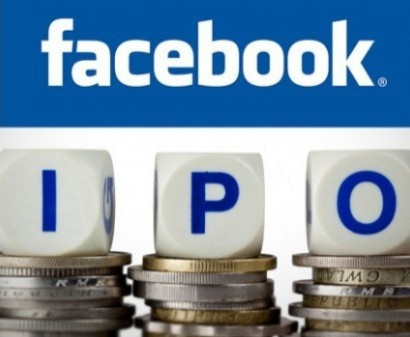IPOs? Did Facebook?s Disaster Poison The Pipeline?

Since its May 17 pricing at $38 a share, the stunning collapse in the value of Facebook (Nasdaq: FB), the No. 1 social networking site, has made history -- for its sheer size and magnitude.
Shares of the Mountain View, Calif., colossus closed Friday at $31.73, up 26 cents, valuing the company at only $67.8 billion, compared with $104 billion when the second-largest initial public offering was priced by principal underwriter Morgan Stanley (NYSE: MS).
The autopsy is continuing. Nasdaq OMX Group (Nasdaq: NDAQ), where the 30-minute gap between the first Facebook trade at $42.05 and what happened later, is being probed by the U.S. Securities and Exchange Commission and has hired International Business Machines Corp. (NYSE: IBM) to analyze its computer system.
Renaissance Capital, the Greenwich, Conn., IPO specialist, reported that companies raised more than $22.7 billion in the second quarter, compared with only $12.3 billion a year ago. But the numbers are skewed by Facebook's megadeal. There were only 31 deals with a median deal size of $165 million, compared with 46 deals with a median deal size of $176.5 million last year.
By sector, technology was No. 1, with nine deals accounting for $17 billion; in other words, the eight other companies that weren't Facebook brought in $16 billion. Next was energy, with 7 deals that brought in $2.5 billion. Transportation was third, with 6 deals that collected $1.8 billion, with about half merely from Carlyle Group (NYSE: CG).
Other companies are still planning an IPO this quarter, though, including a handful in technology. Estimates by Renaissance Capital, the Greenwich, Conn., IPO specialists, are for as many as 157 more by companies seeking to raise as much as $40.9 billion.
The largest would be ILFC Holdings, the No. 1 lessor of aircraft, which was acquired by insurance broker AIG (NYSE: AIG) in its heyday. Now seeking to recover from a government bailout, a spun-off ILFC wants to raise $1.8 billion
Next largest is Intelsat, the No. 1 provider of satellite services to business, which seeks $1.75 billion in the capital markets. The Luxembourg-based company has been private for 45 years.
Other technology companies include Palo Alto Networks, which develops network security software and products, seeking to raise $175 million; human-resource software developer Workday, which might seek $250 million and Dropbox, the familiar Cloud storage services provider, which might tap $257 million from the market.
Palo Alto is the only one that had submitted documents to the U.S. Securities and Exchange Commission, though, and was affected by the effective freeze on IPOs post Facebook.
As well, investors may have also been spooked by the continuing economic crisis in Europe, which just Thursday saw the European Central Bank trim interest rates to only 0.75 percent, the lowest rate since 1999.
The capital markets community is clearly concerned that economic turmoil overseas will keep markets volatile, said Wendy Hambleton, a capital markets partner at BDO USA, one of the top four accounting firms.
As a result, It will be a challenging time for initial public offerings, she added.
Overall, Renaissance Capital estimated, the Facebook debacle made its IPO Index for the quarter fall 16 percent compared with only 6 percent for the more general Russell 3000 Index, which declined 6 percent.
Besides Facebook's huge swoon, other tech underperformers were Zynga (Nasdaq: ZNGA), which fell 59 percent and NXP Semiconductors (Nasdaq: NXPI), the former chip unit of Dutch electronics giant Philips that had been acquired by private equity companies. NXP shares gave up 19 percent.
Still, analysts expect several of the issues in technology to finally go public this quarter, mainly Palo Alto Networks and maybe Workday, whose principals were the founders of PeopleSoft, now a part of Oracle (Nasdaq: ORCL), the No. 1 database developer.
Not a candidate for a 2012 IPO: Twitter, the San Francisco-based social networker. Its CEO, Dick Costolo, has said repeatedly, Wait 'til next year.
© Copyright IBTimes 2024. All rights reserved.






















